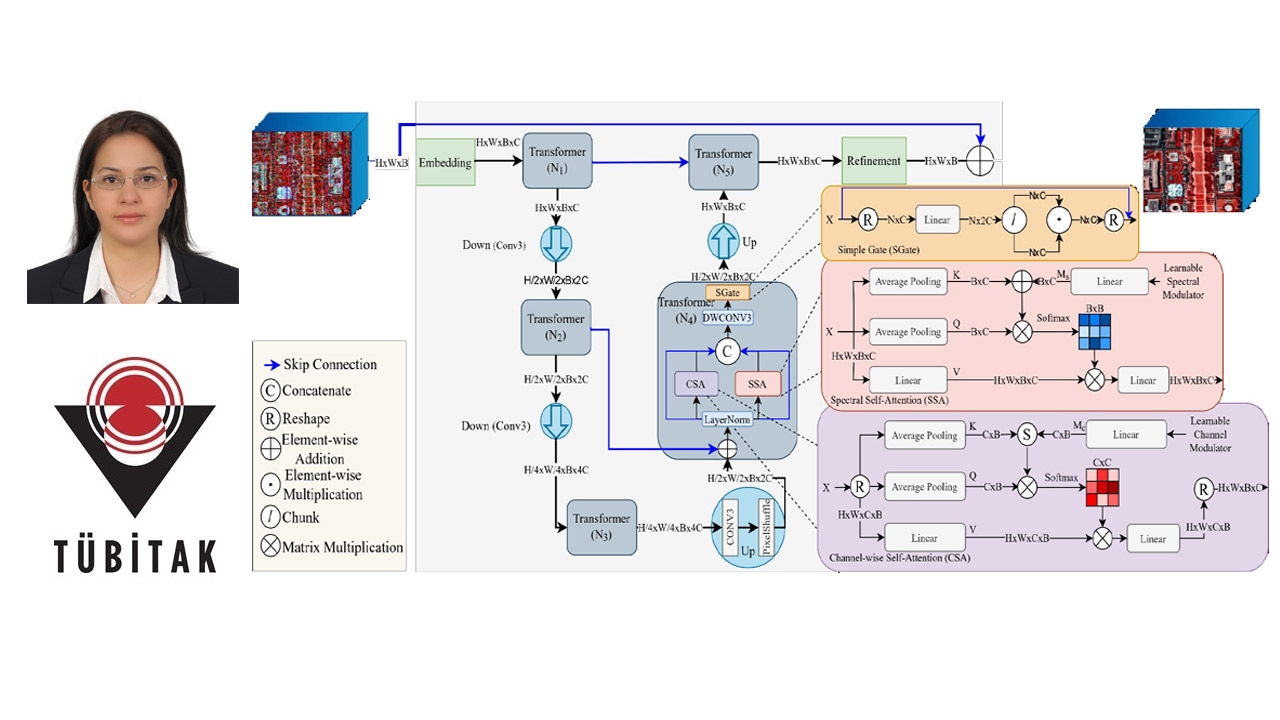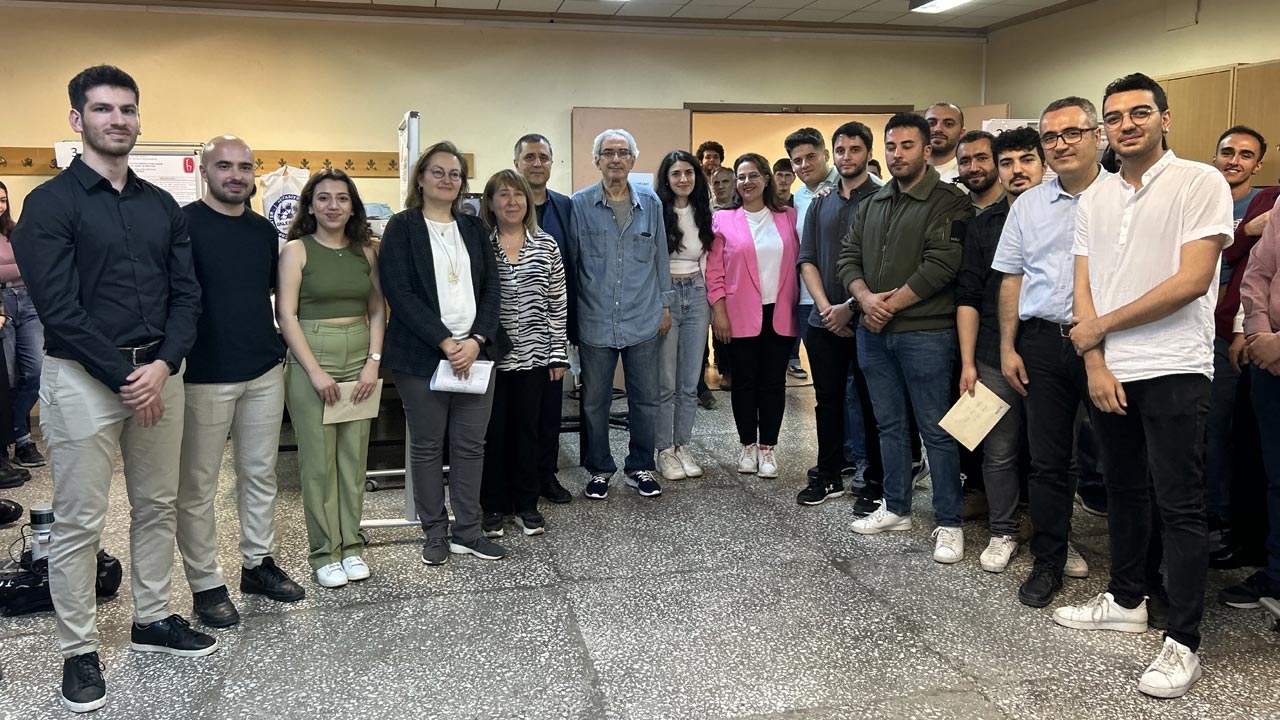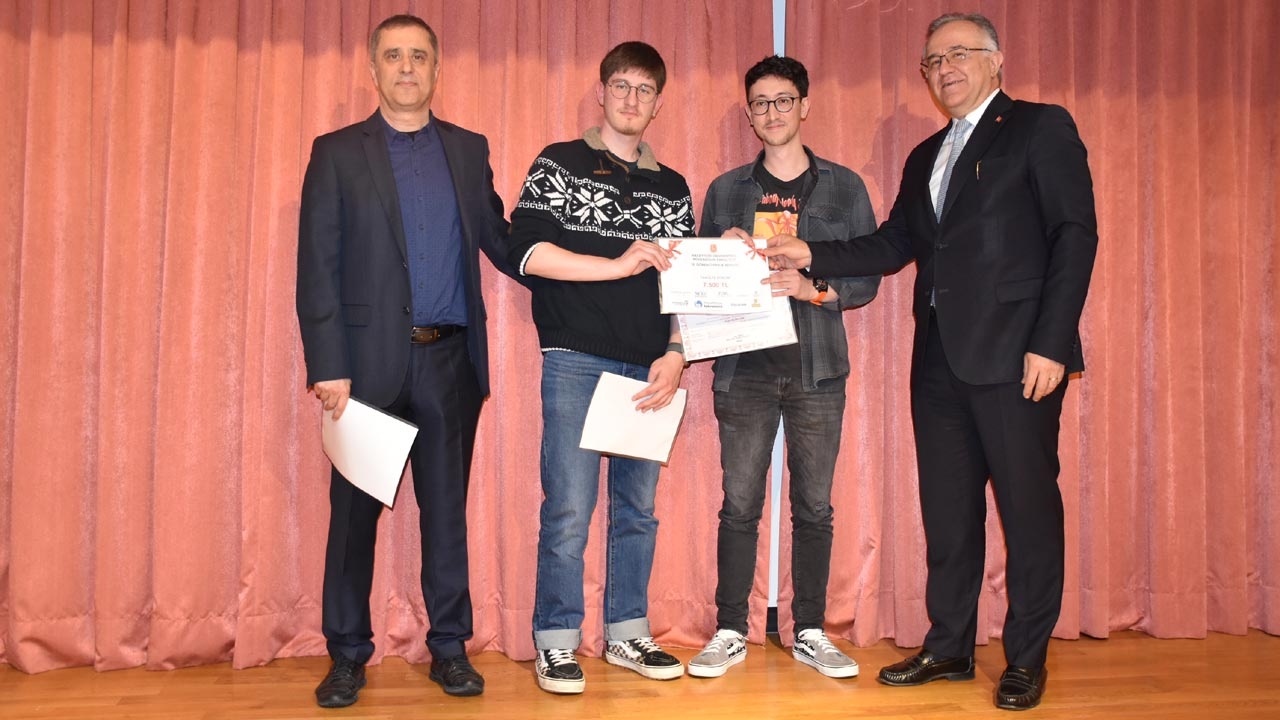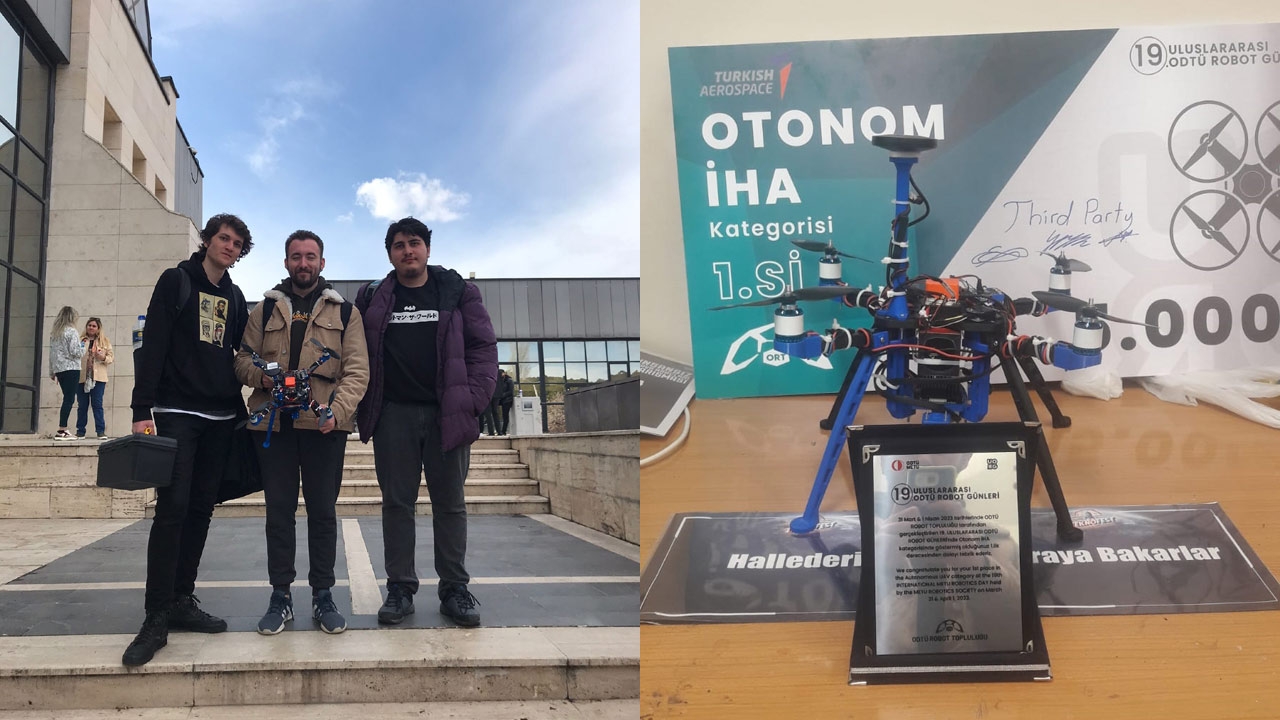News
TUBITAK 1001 Project: Seeing the Invisible: End-to-End Approaches for Hyperspectral Image Enhancement and Synthesis
October 26, 2023
Our faculty member Dr. S. Esen Yüksel's research project "Seeing the Invisible: End-to-End Approaches for Hyperspectral Image Enhancement and Synthesis" kicked off in September 2023 within 1001 Funding Program of The Scientific and Technological Research Council of Türkiye.

The purpose of this program is to support research projects that comply with scientific principles for generating new information, making scientific comments or solving technological problems.
A summary of the project is below.
We extend our congratulations to Dr. Yüksel, her team members Dr. Erkut Erdem from the Department of Computer Engineering of Hacettepe University and Dr. Aykut Erdem from the Department of Computer Engineering of Koc University for this prestigious project.
Project Summary
Hyperspectral cameras are advanced imaging devices that capture images in many different wavelengths of light, providing rich information about the properties of objects and materials that cannot be obtained using conventional RGB cameras. Unlike RGB cameras, which capture only three bands of the electromagnetic spectrum (red, green, and blue), hyperspectral cameras can capture hundreds of narrow spectral bands, allowing for highly detailed and accurate spectral analysis of the objects being imaged like their chemical composition, physical properties, and biological characteristics of the objects and materials being imaged. This makes hyperspectral imaging a powerful tool for a wide range of applications, including remote sensing, medical imaging, industrial inspection, and surveillance.
One of the key challenges in hyperspectral imaging is, however, dealing with noise and low-light conditions, which can severely degrade image quality and limit the effectiveness of subsequent analysis and interpretation. To address this challenge, advanced denoising algorithms are needed that can effectively remove noise while preserving important spectral information. In this context, the proposed research project aims to develop novel end-to-end approaches for hyperspectral image enhancement. Furthermore, we will also explore the exciting possibility of synthesizing hyperspectral images from standard RGB images, which has received limited attention in the literature, but has the potential to greatly expand the capabilities of hyperspectral imaging. The conversion of RGB images to hyperspectral images using labeled data obtained through this process will pave the way for studies that will enable machine learning algorithms to perform better. By developing end-to-end approaches for denoising, enhancing, and synthesizing hyperspectral images, we can unlock the full potential of this powerful imaging technique, and "see the invisible" in ways that were previously impossible.
A summary of the project is below.
We extend our congratulations to Dr. Yüksel, her team members Dr. Erkut Erdem from the Department of Computer Engineering of Hacettepe University and Dr. Aykut Erdem from the Department of Computer Engineering of Koc University for this prestigious project.
Project Summary
Hyperspectral cameras are advanced imaging devices that capture images in many different wavelengths of light, providing rich information about the properties of objects and materials that cannot be obtained using conventional RGB cameras. Unlike RGB cameras, which capture only three bands of the electromagnetic spectrum (red, green, and blue), hyperspectral cameras can capture hundreds of narrow spectral bands, allowing for highly detailed and accurate spectral analysis of the objects being imaged like their chemical composition, physical properties, and biological characteristics of the objects and materials being imaged. This makes hyperspectral imaging a powerful tool for a wide range of applications, including remote sensing, medical imaging, industrial inspection, and surveillance.
One of the key challenges in hyperspectral imaging is, however, dealing with noise and low-light conditions, which can severely degrade image quality and limit the effectiveness of subsequent analysis and interpretation. To address this challenge, advanced denoising algorithms are needed that can effectively remove noise while preserving important spectral information. In this context, the proposed research project aims to develop novel end-to-end approaches for hyperspectral image enhancement. Furthermore, we will also explore the exciting possibility of synthesizing hyperspectral images from standard RGB images, which has received limited attention in the literature, but has the potential to greatly expand the capabilities of hyperspectral imaging. The conversion of RGB images to hyperspectral images using labeled data obtained through this process will pave the way for studies that will enable machine learning algorithms to perform better. By developing end-to-end approaches for denoising, enhancing, and synthesizing hyperspectral images, we can unlock the full potential of this powerful imaging technique, and "see the invisible" in ways that were previously impossible.
More news









